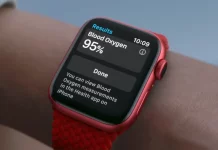A judicial tribunal in London has rejected Apple’s attempt to dismiss a lawsuit alleging the tech giant concealed defective batteries in millions of iPhones by throttling them with software updates. The lawsuit, worth up to $2 billion, was initiated by British consumer champion Justin Gutmann on behalf of over 20 million iPhone users in the United Kingdom.
Gutmann’s lawsuit claims that Apple installed a power management tool via software updates, slowing down various iPhone models, including iPhone 6, 6 Plus, 6s, 6s Plus, SE, 7, and 7 Plus. Consumers argue that they did not receive the quality they paid for, and Apple allegedly misled them about the performance of their devices.

The Competition Appeal Tribunal (CAT) ruled in favor of Gutmann, allowing the case to proceed. However, the tribunal highlighted a lack of clarity and specificity in the lawsuit that needs addressing before a trial can move forward. Despite this, Gutmann’s victory marks a significant step toward justice for consumers.
Apple vehemently denied the allegations, asserting that the lawsuit was baseless and that iPhone batteries were not defective, except for a limited number of iPhone 6s models, for which the company offered free battery replacements. An Apple spokesperson reiterated the company’s commitment to not intentionally shortening the life of any product or degrading user experience to promote upgrades.
Gutmann’s lawsuit aims to combine the claims of millions of iPhone users in the U.K. into one consolidated legal action against Apple. The lawsuit, filed in 2022, accuses Apple of exploitative and unfair practices that harmed its customers. This legal battle in the U.K. mirrors a similar class action lawsuit in the U.S. federal court, which Apple settled in 2020 by agreeing to pay up to $500 million to iPhone customers, although the company did not admit wrongdoing in that case.
Apple now faces a challenging legal battle as it contends with these allegations in court.
Related:
- Apple Warns Indian Opposition Politicians of ‘State-Sponsored Attacks’
- Apple discontinues 13-inch MacBook Pro with Touch Bar
- iPhone 16 Pro May Reportedly Adopt Molded Glass Lenses
(via)






